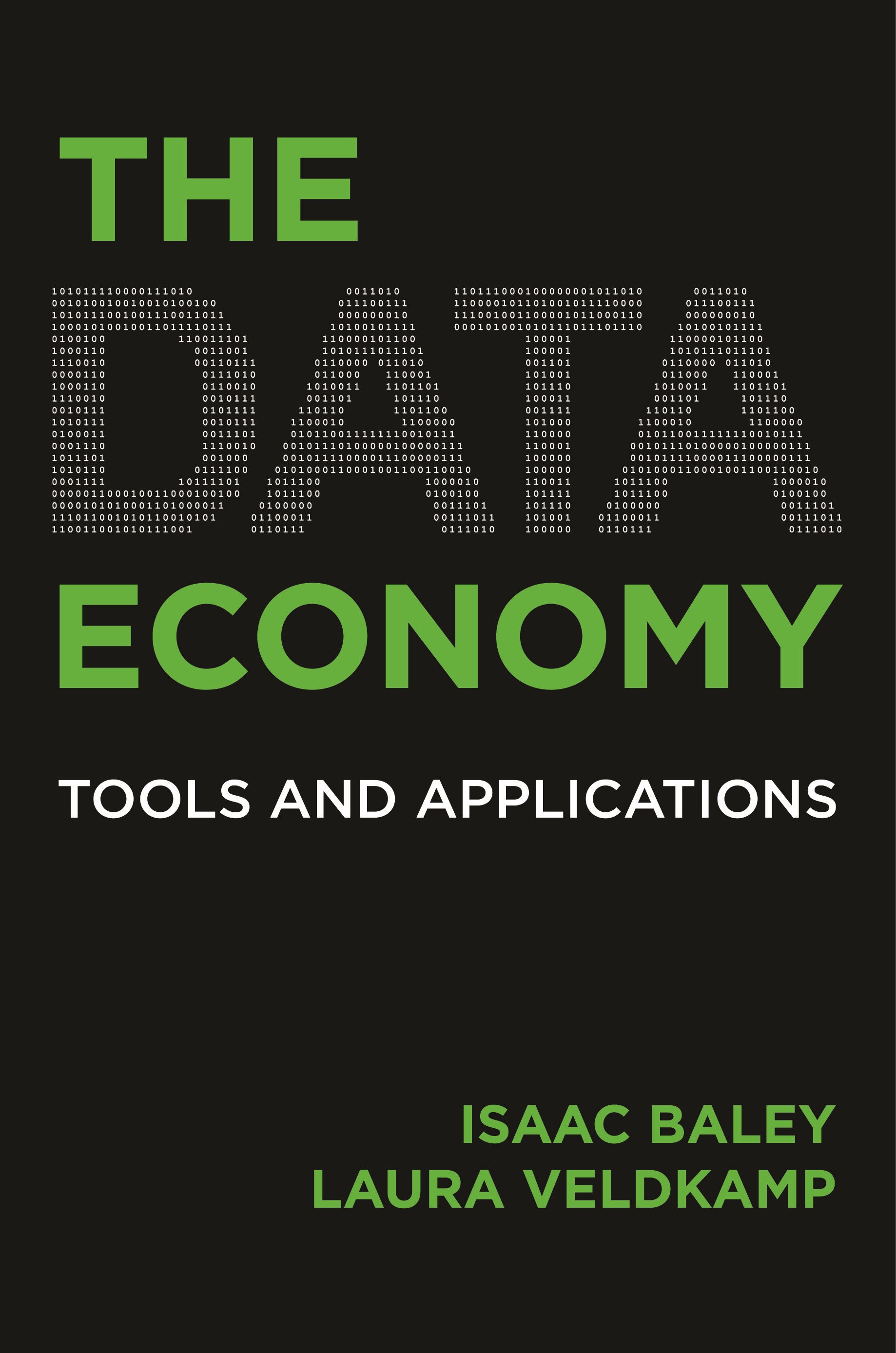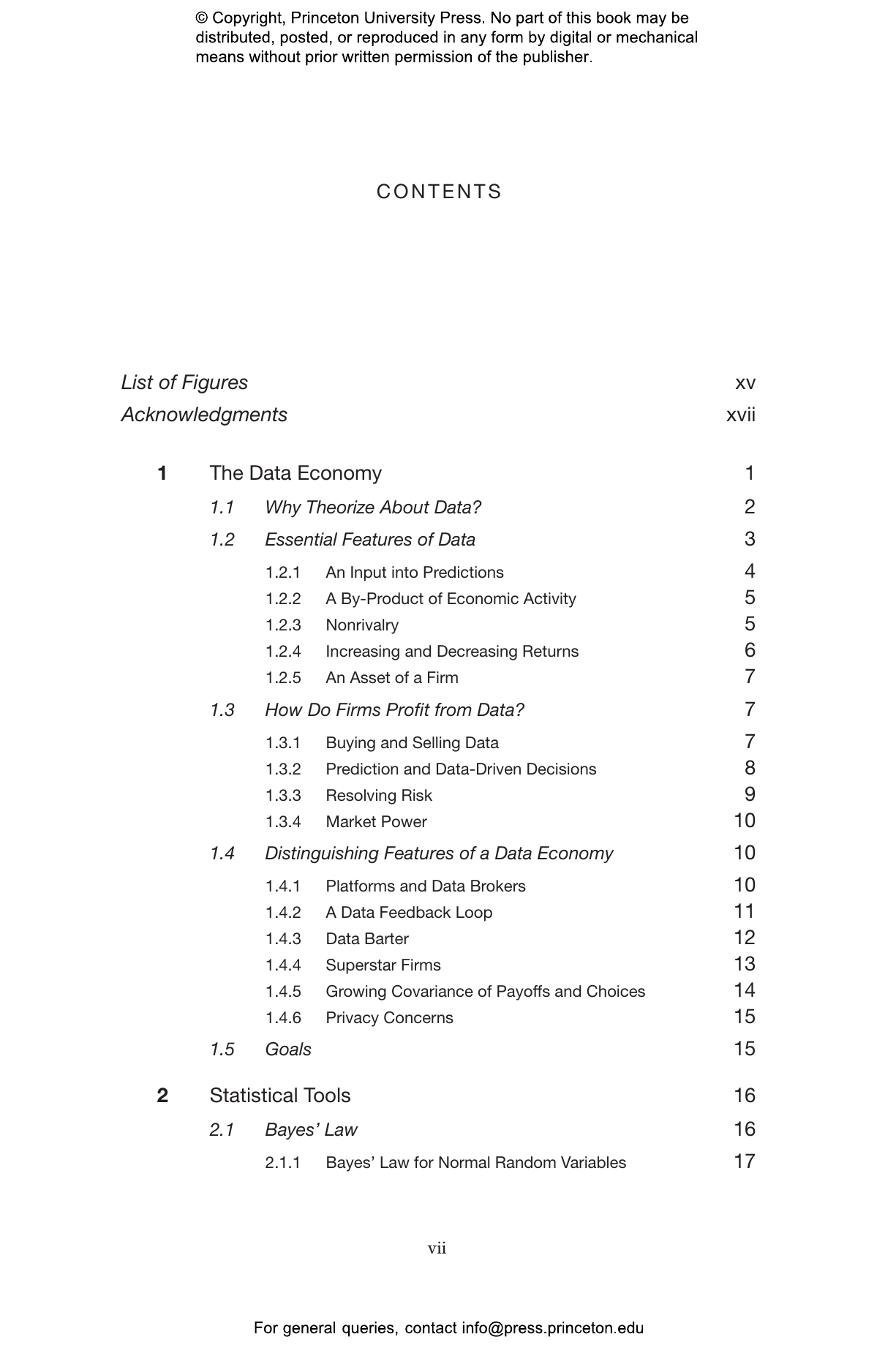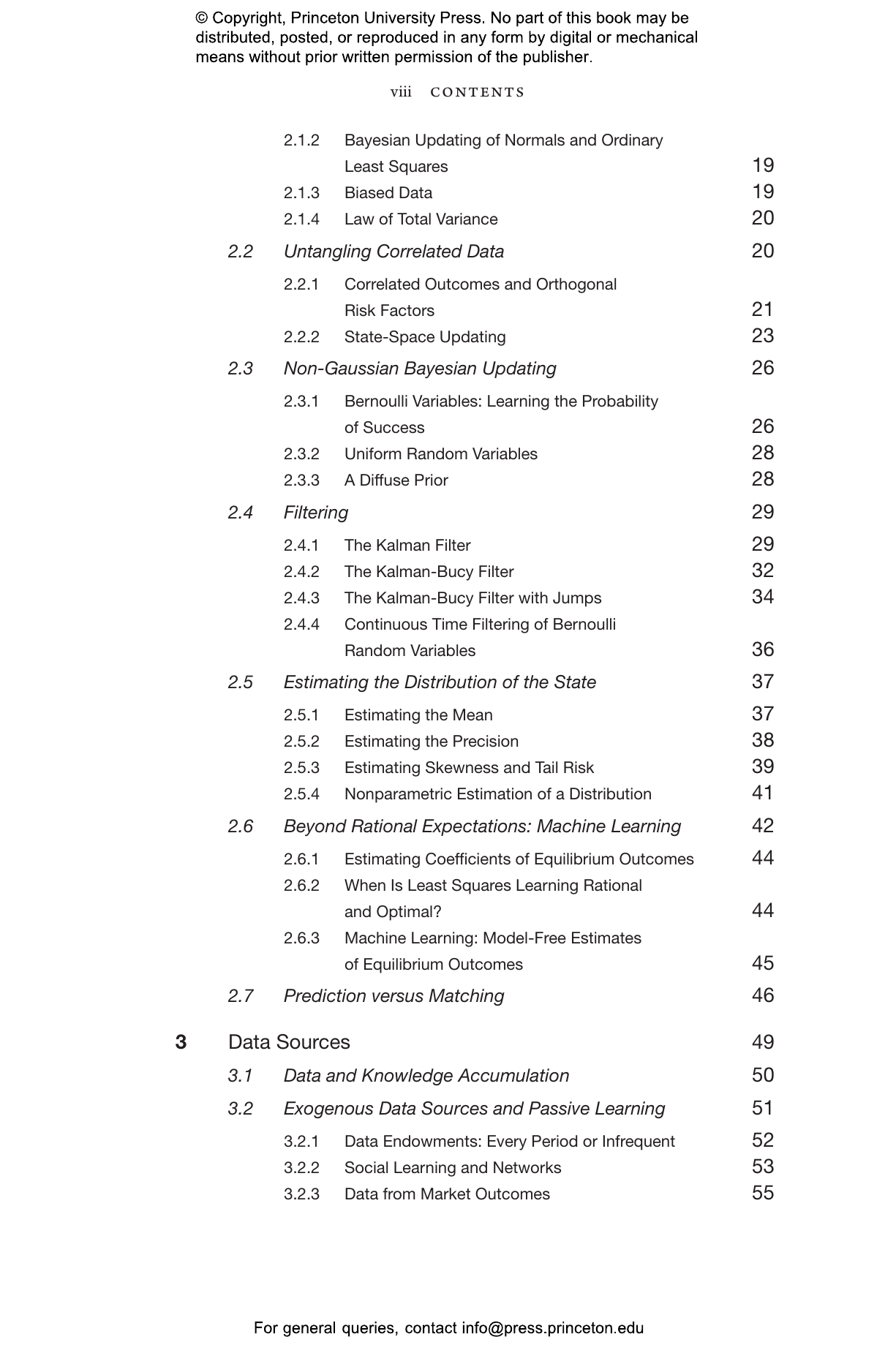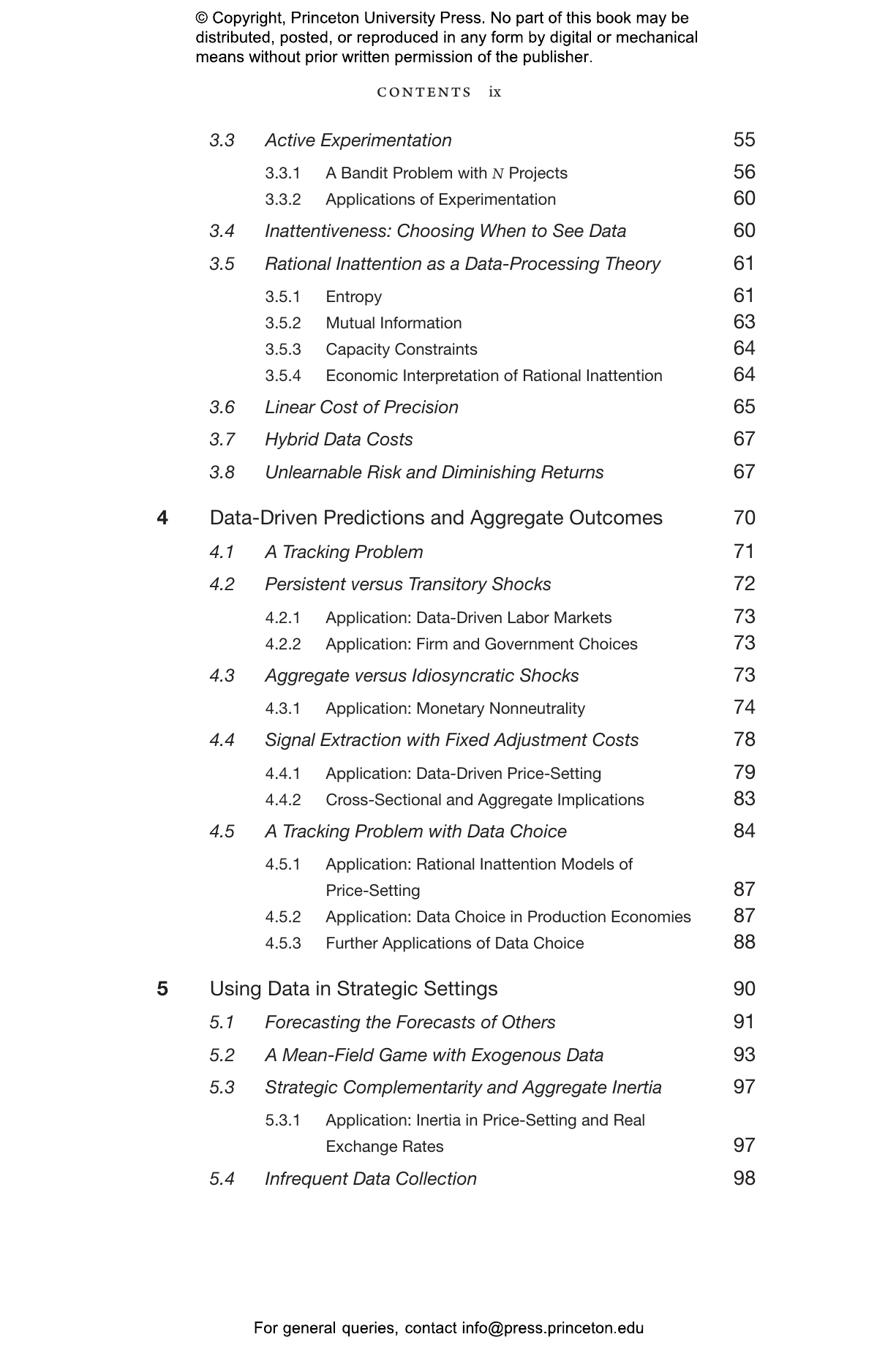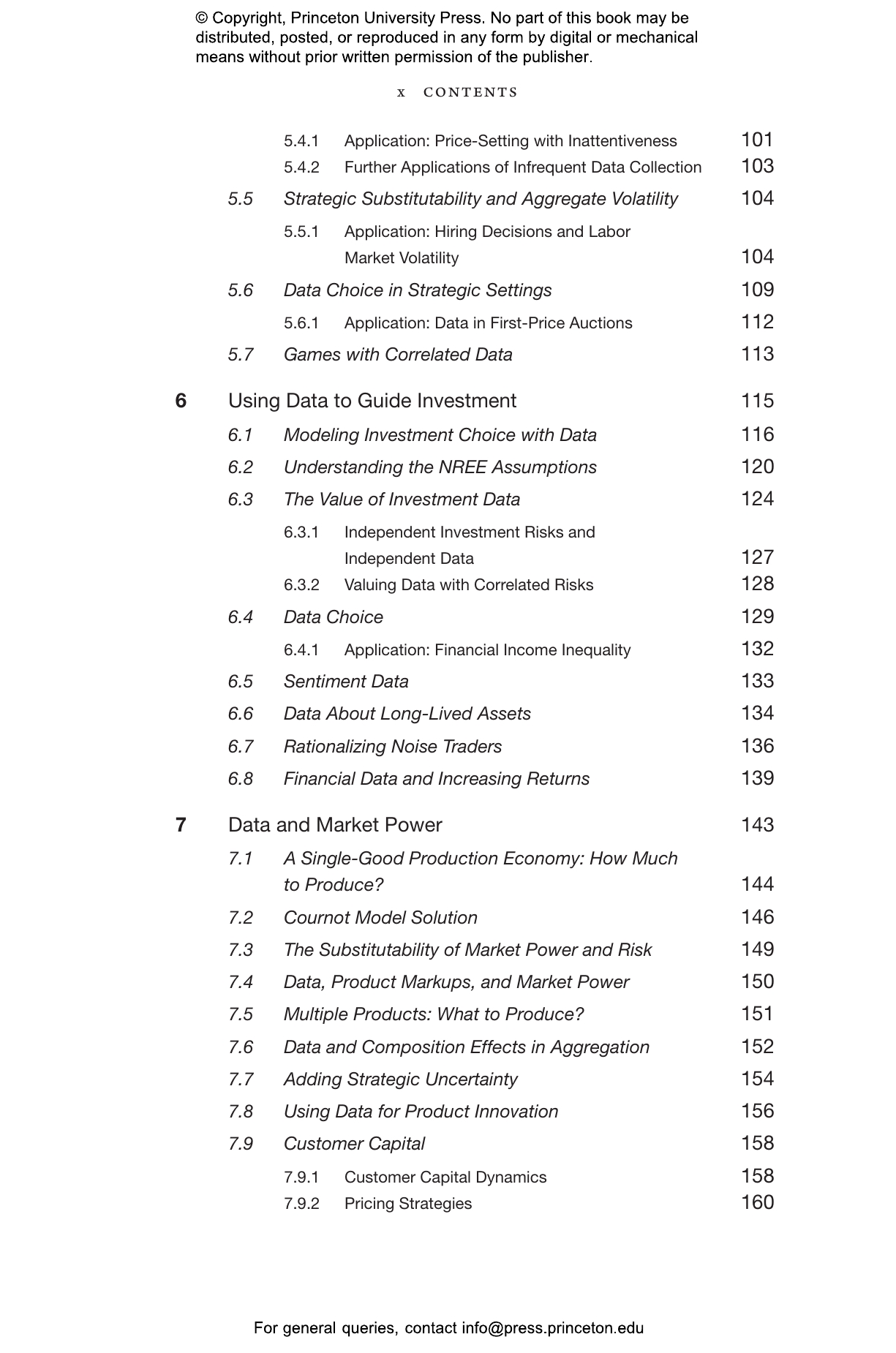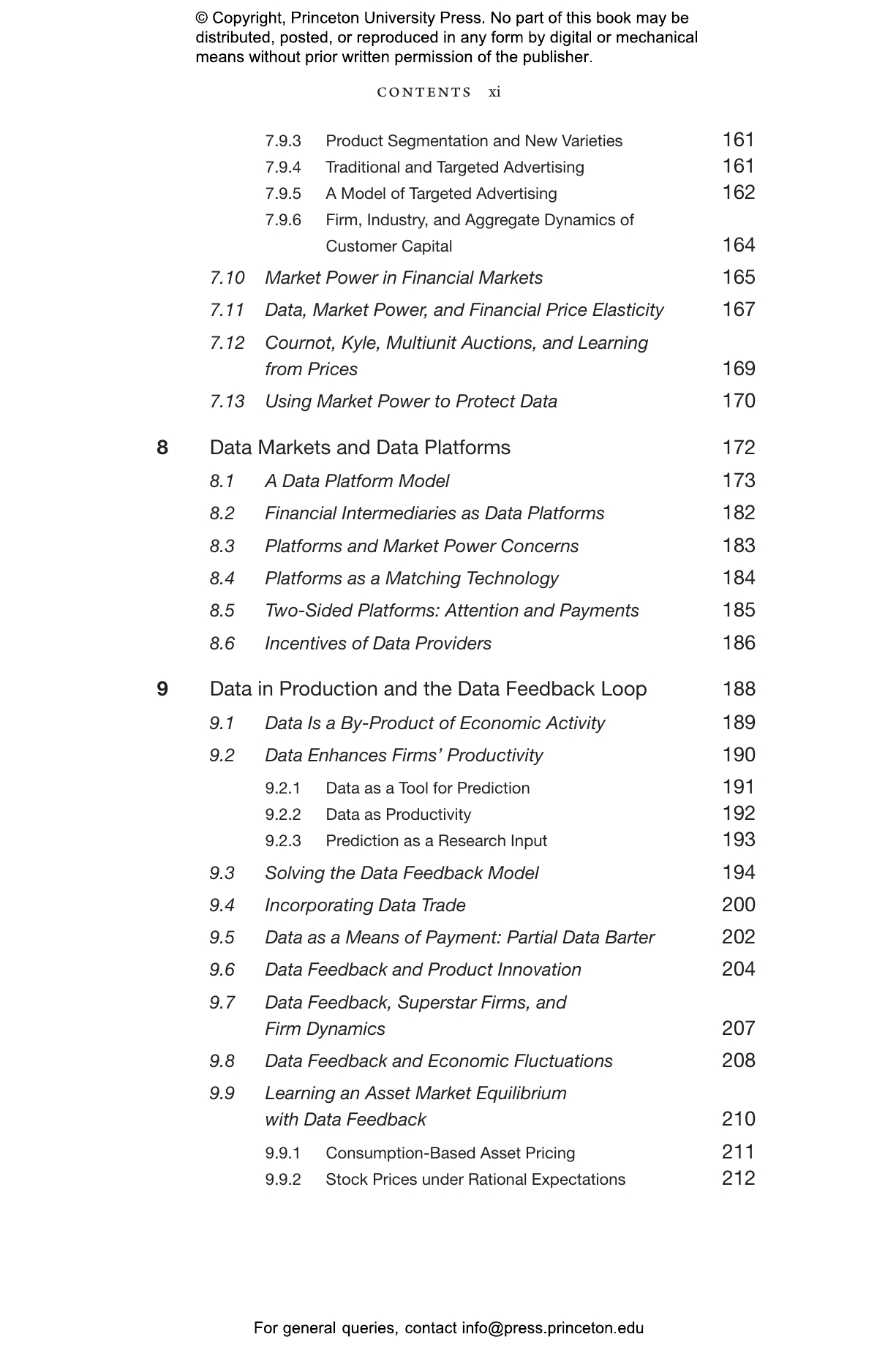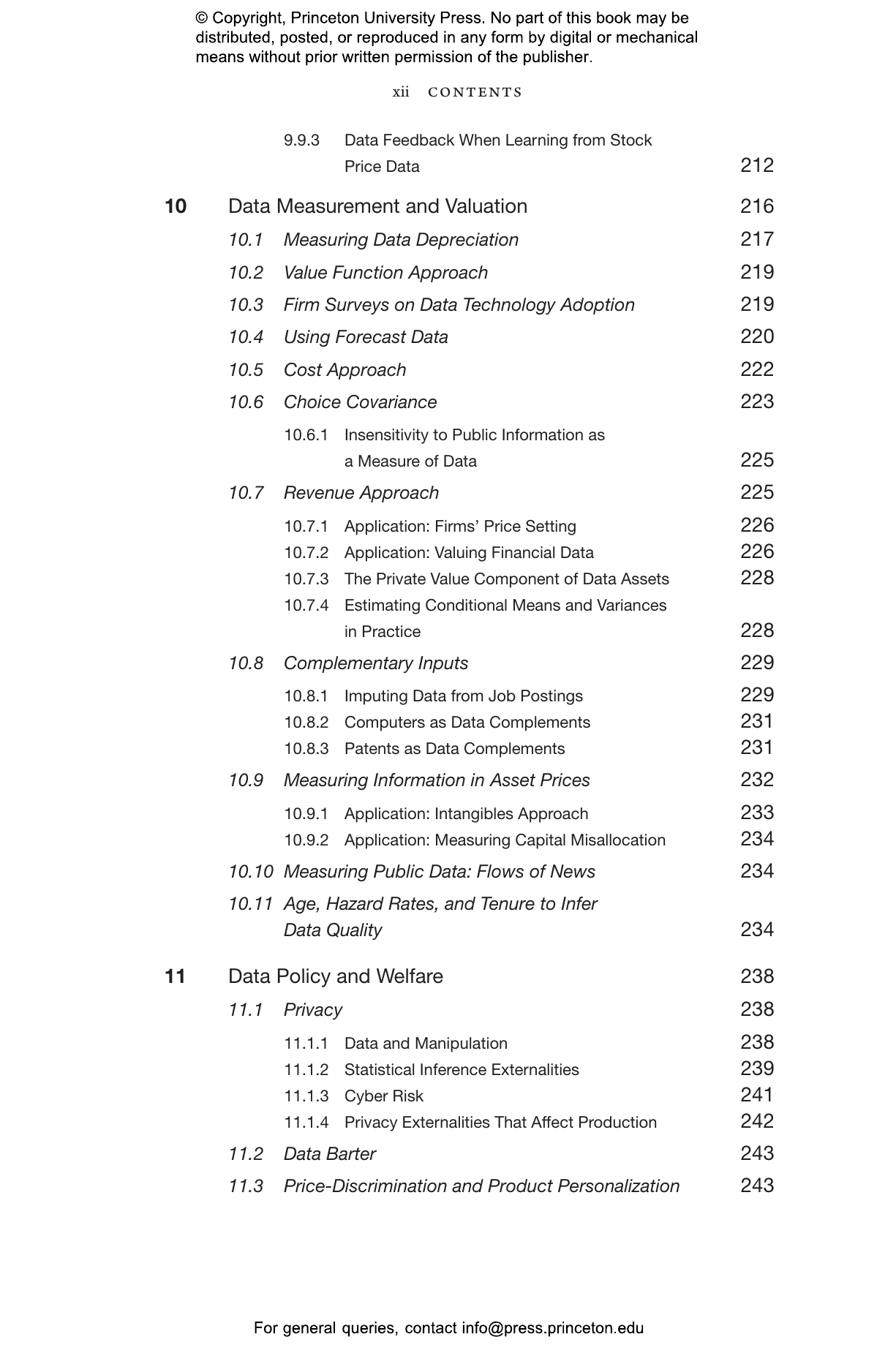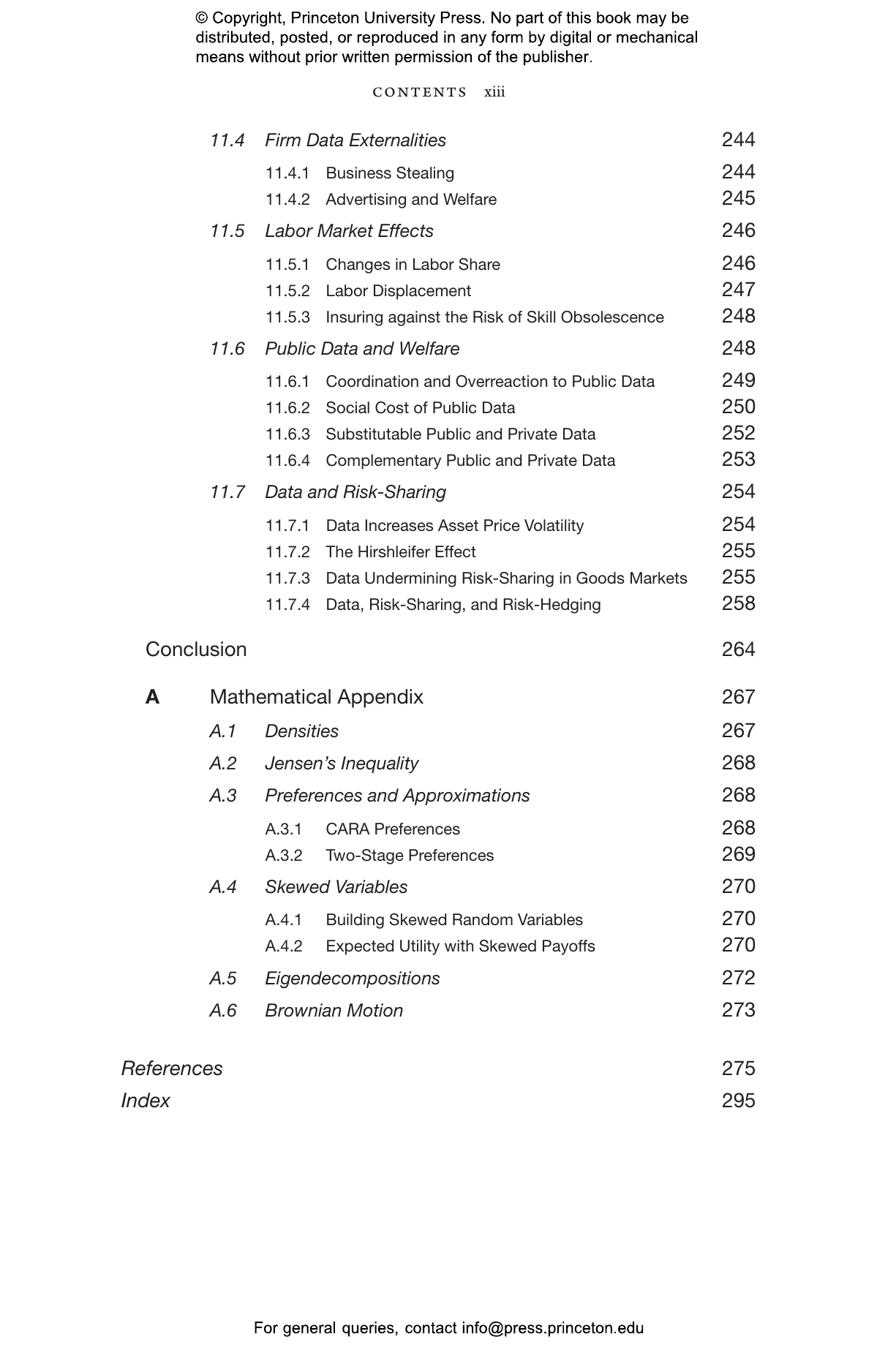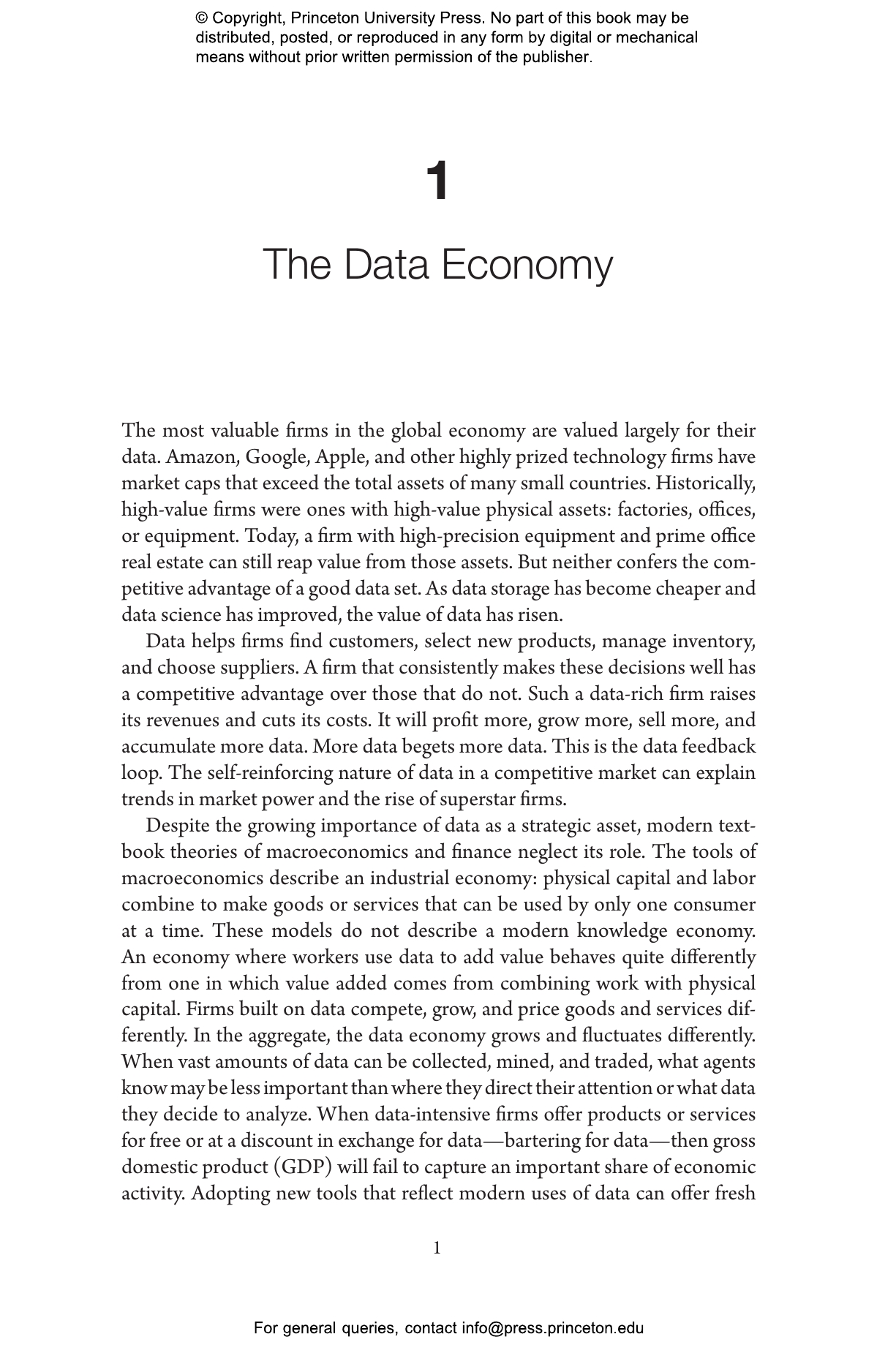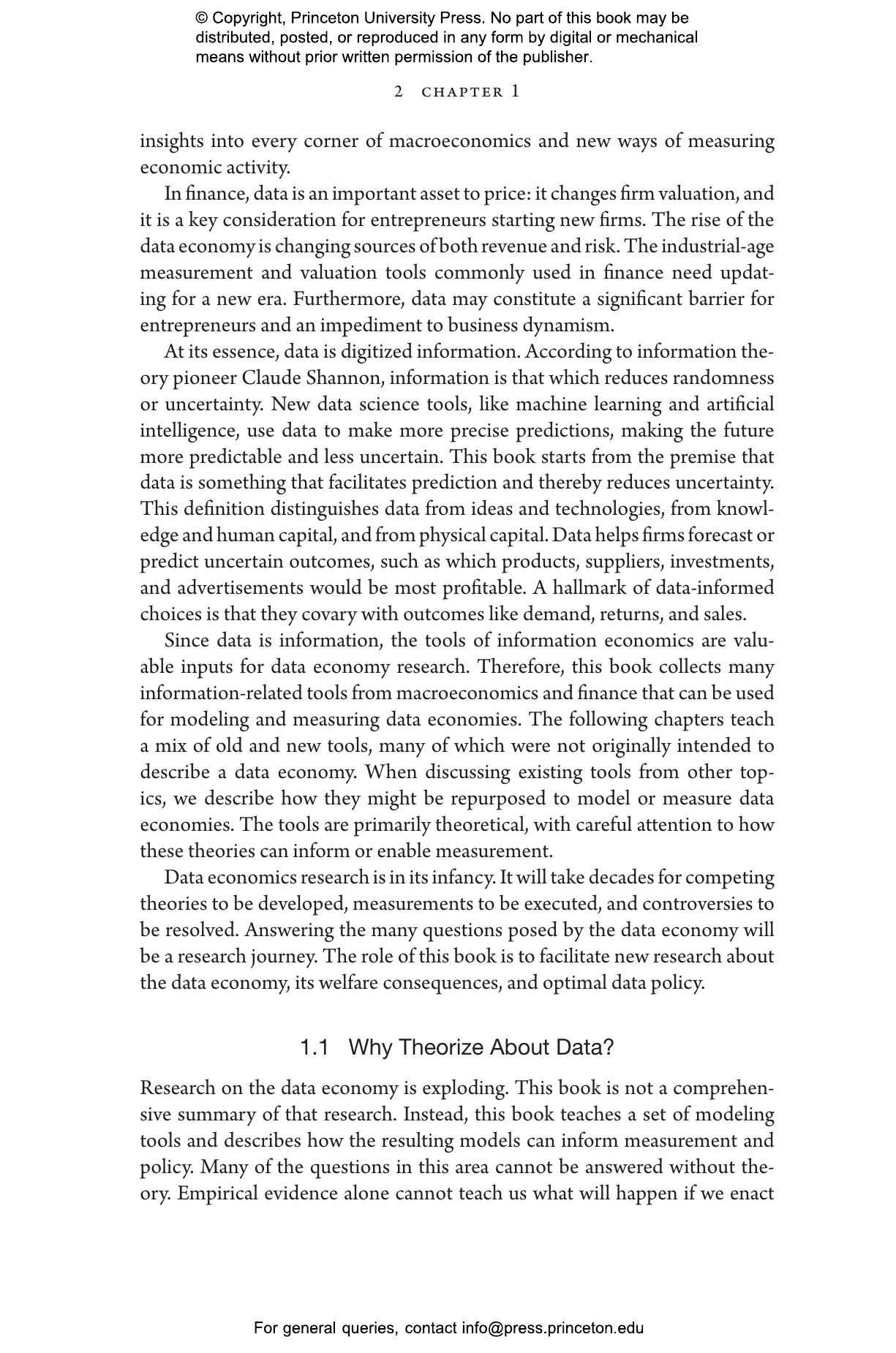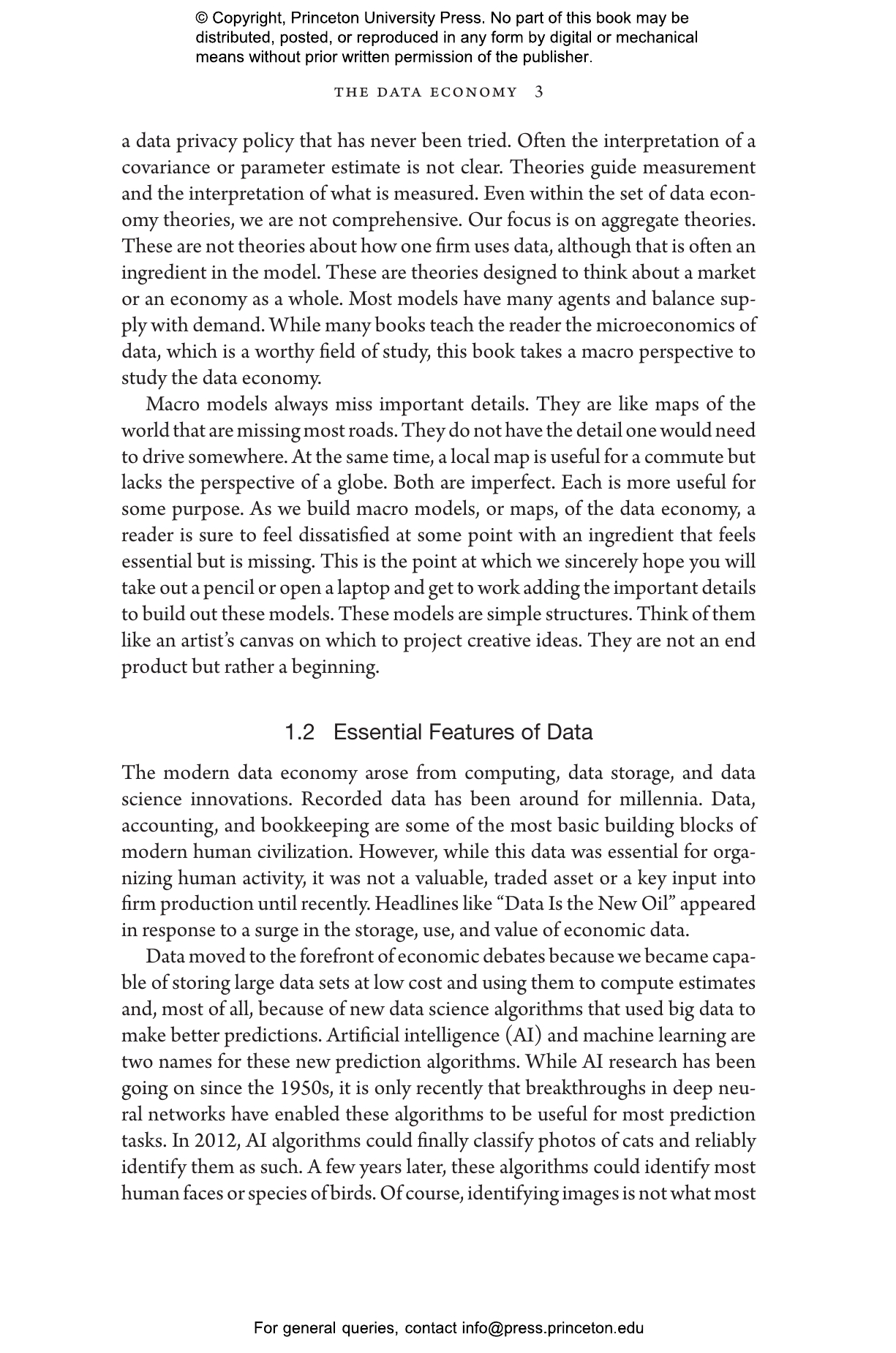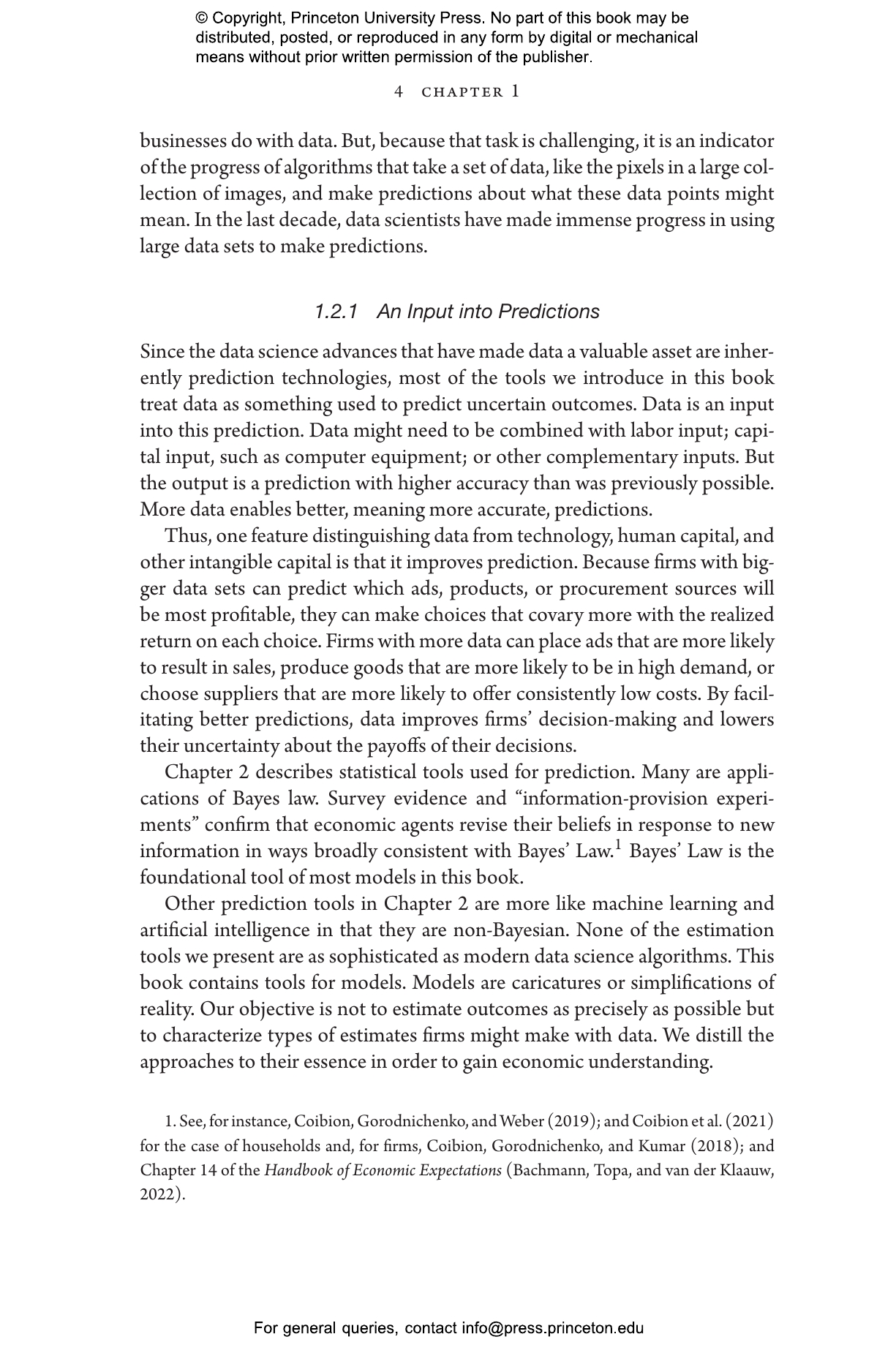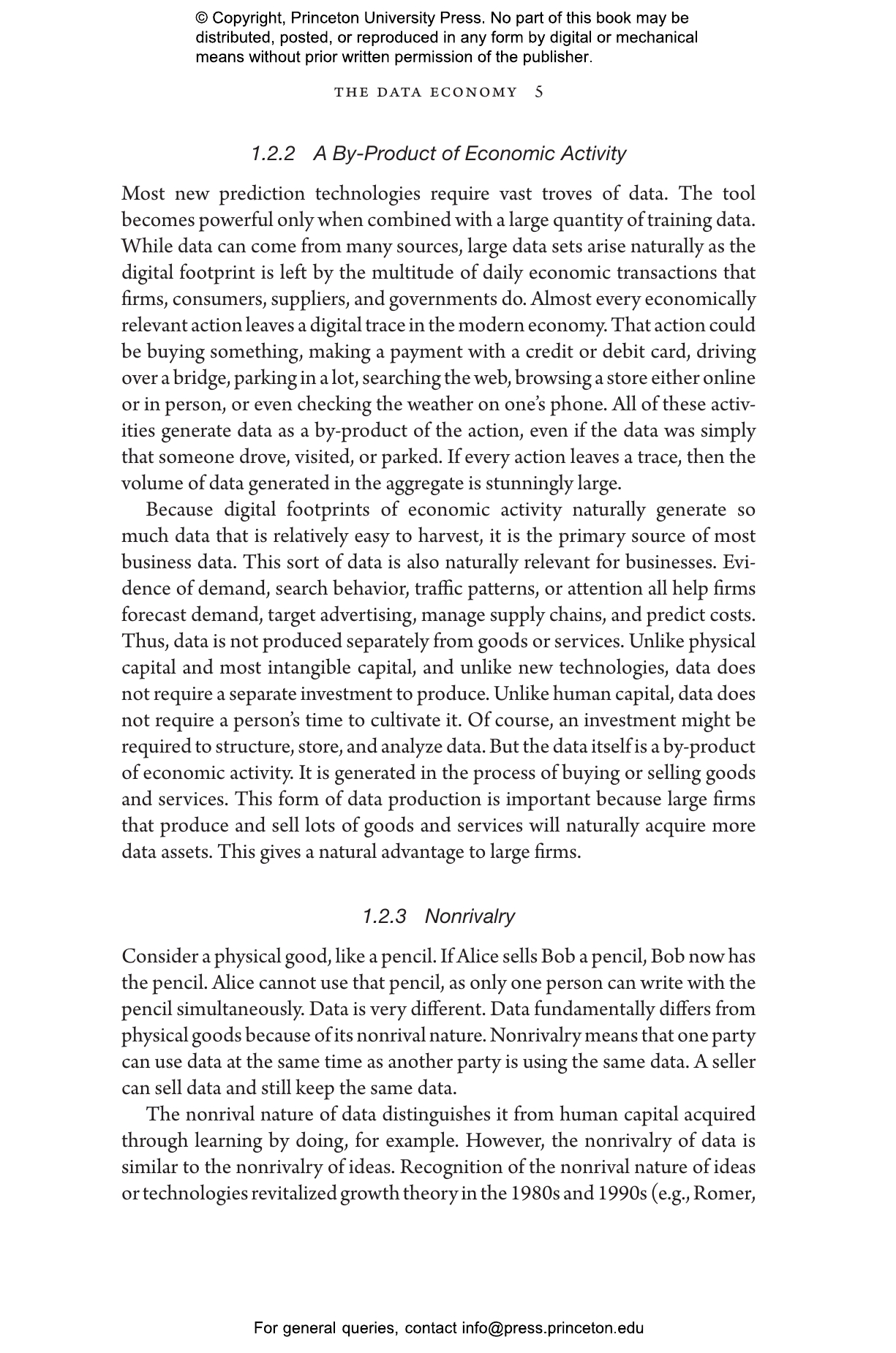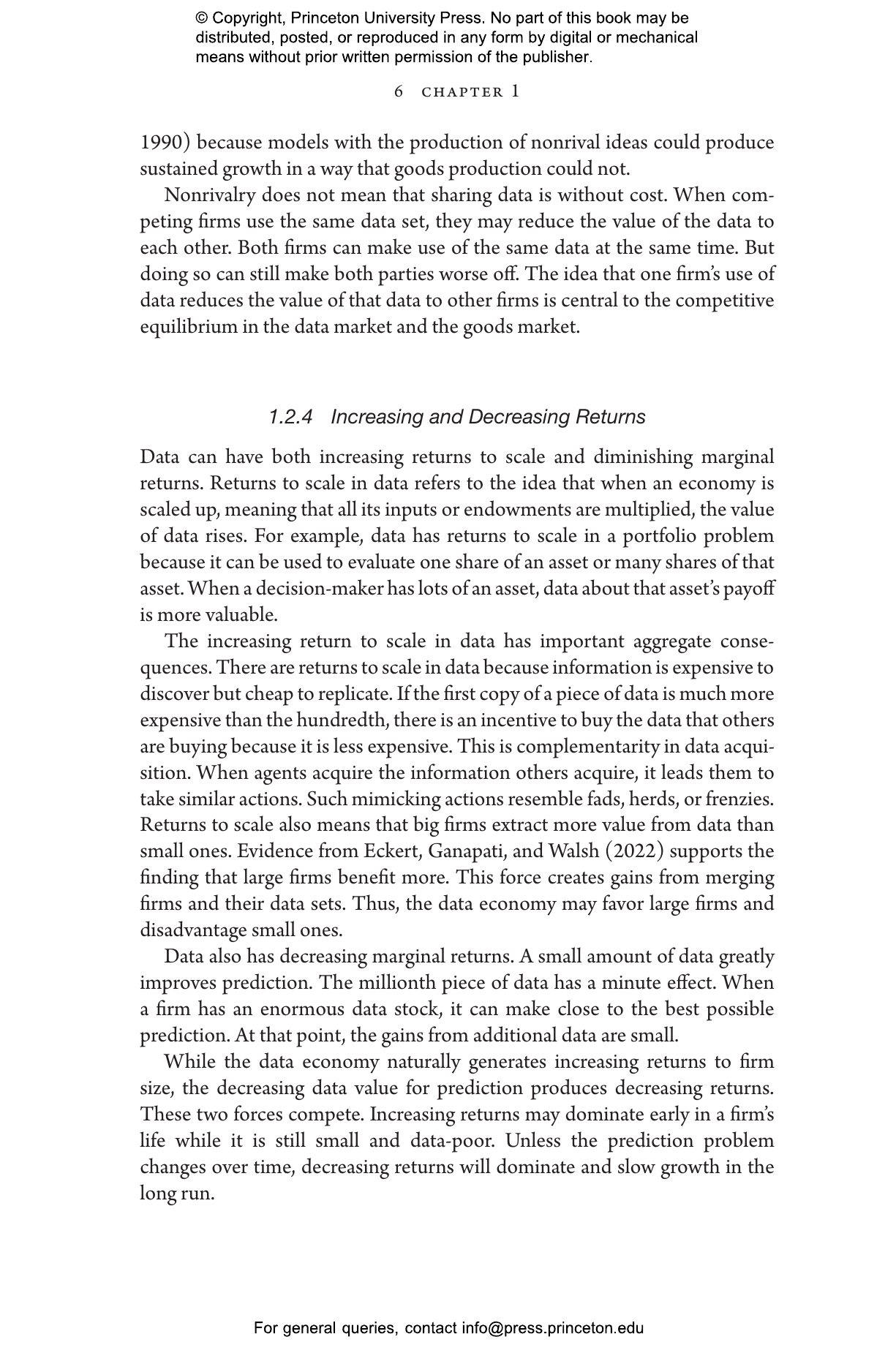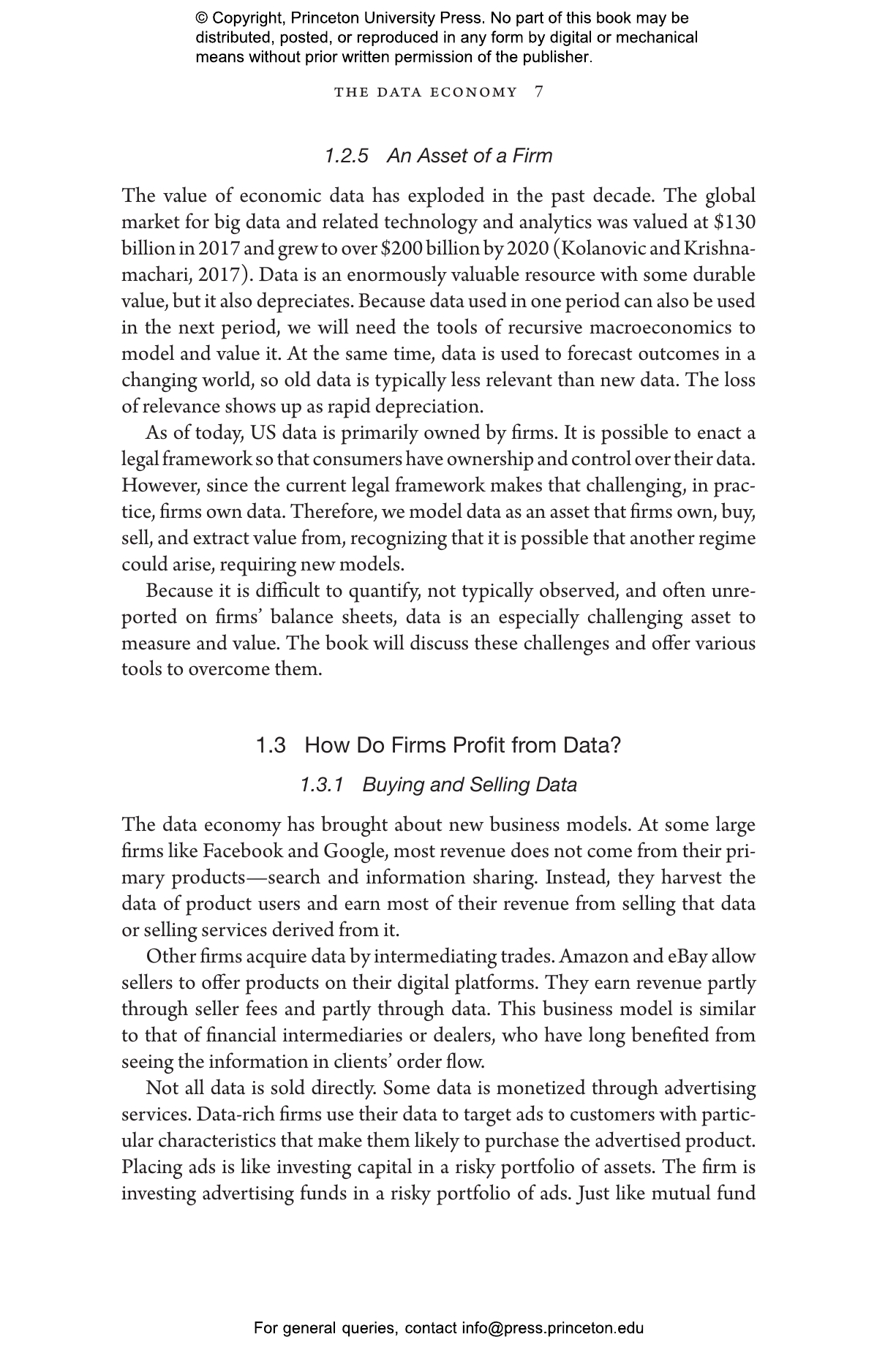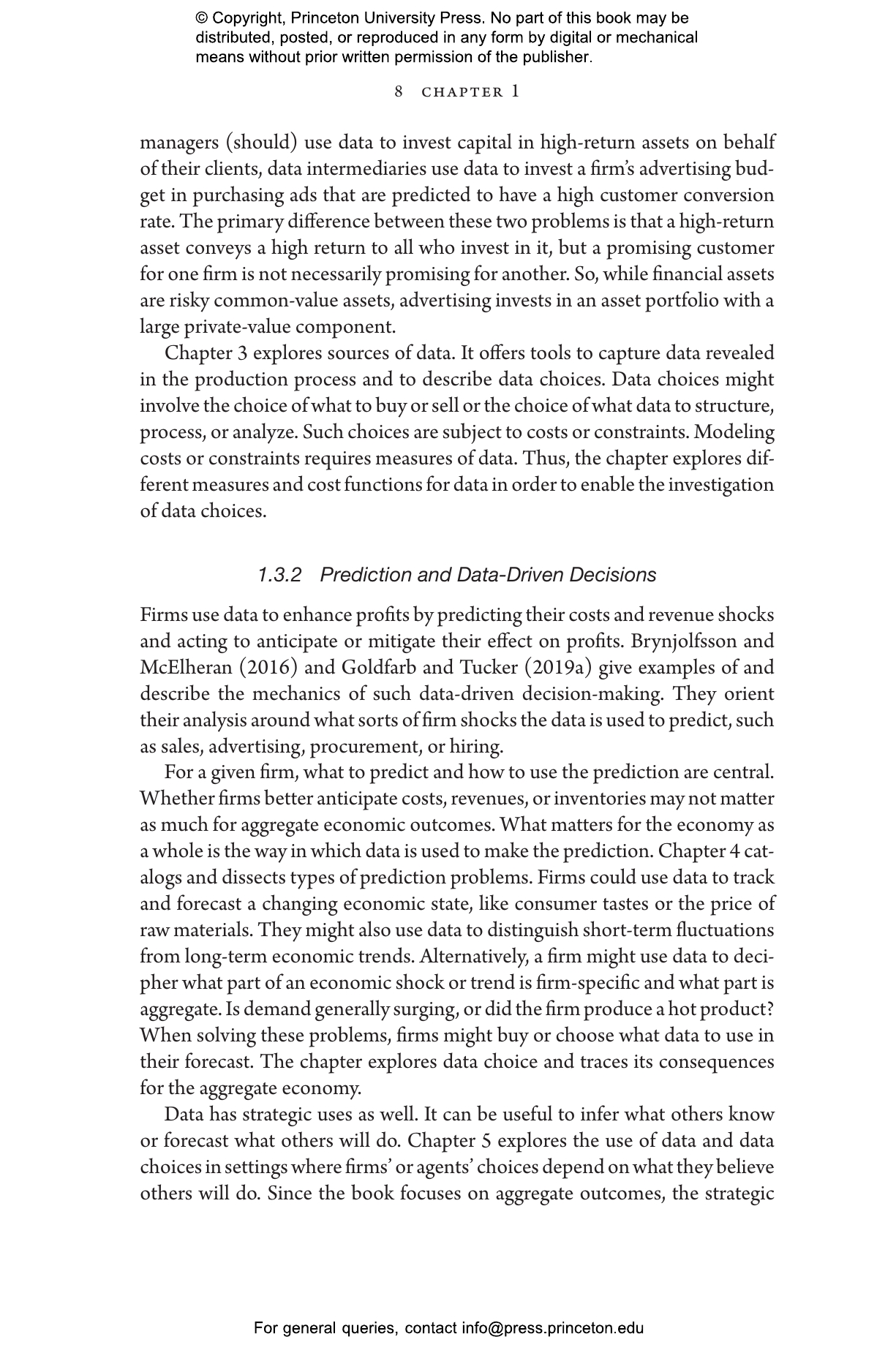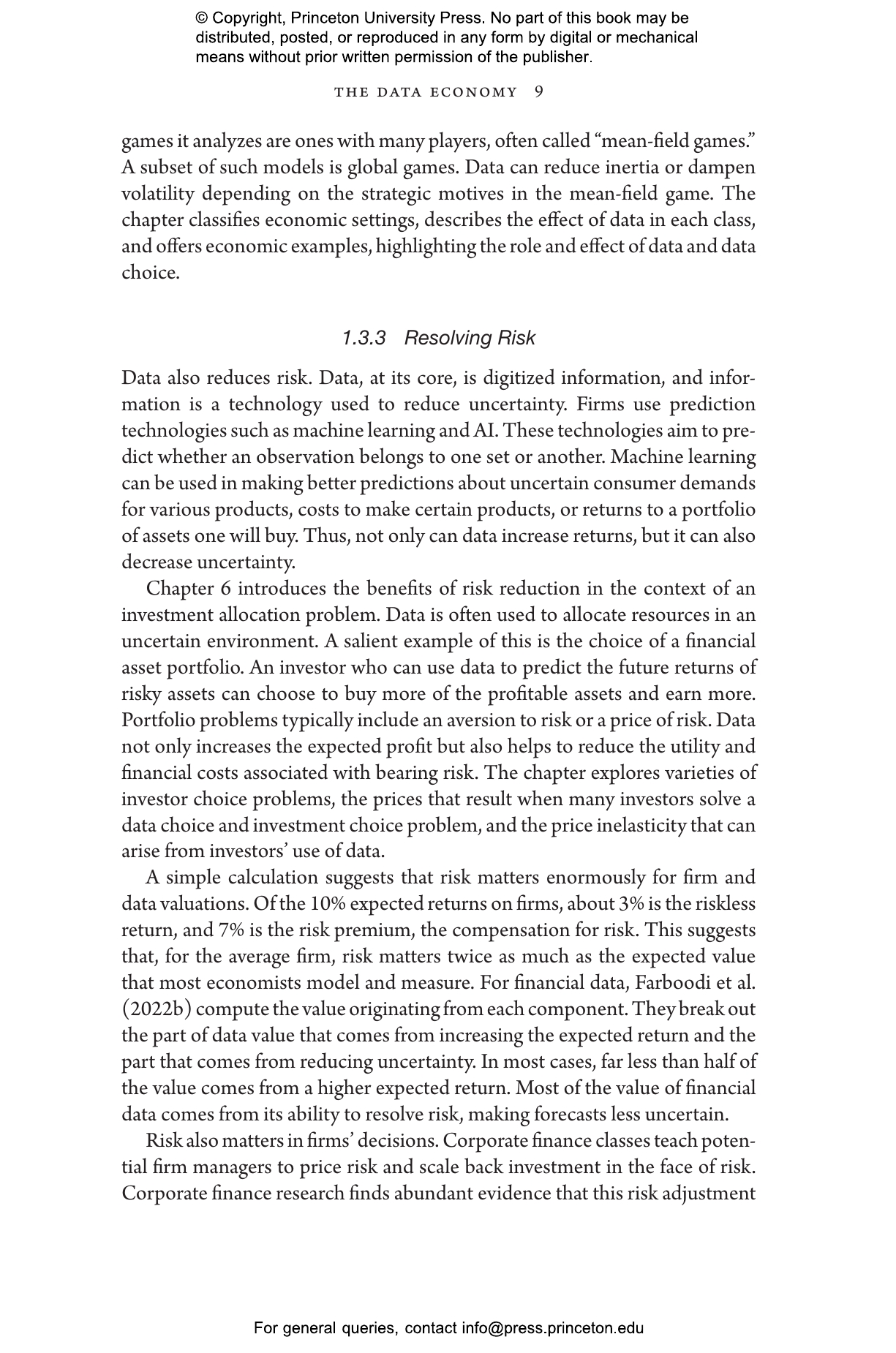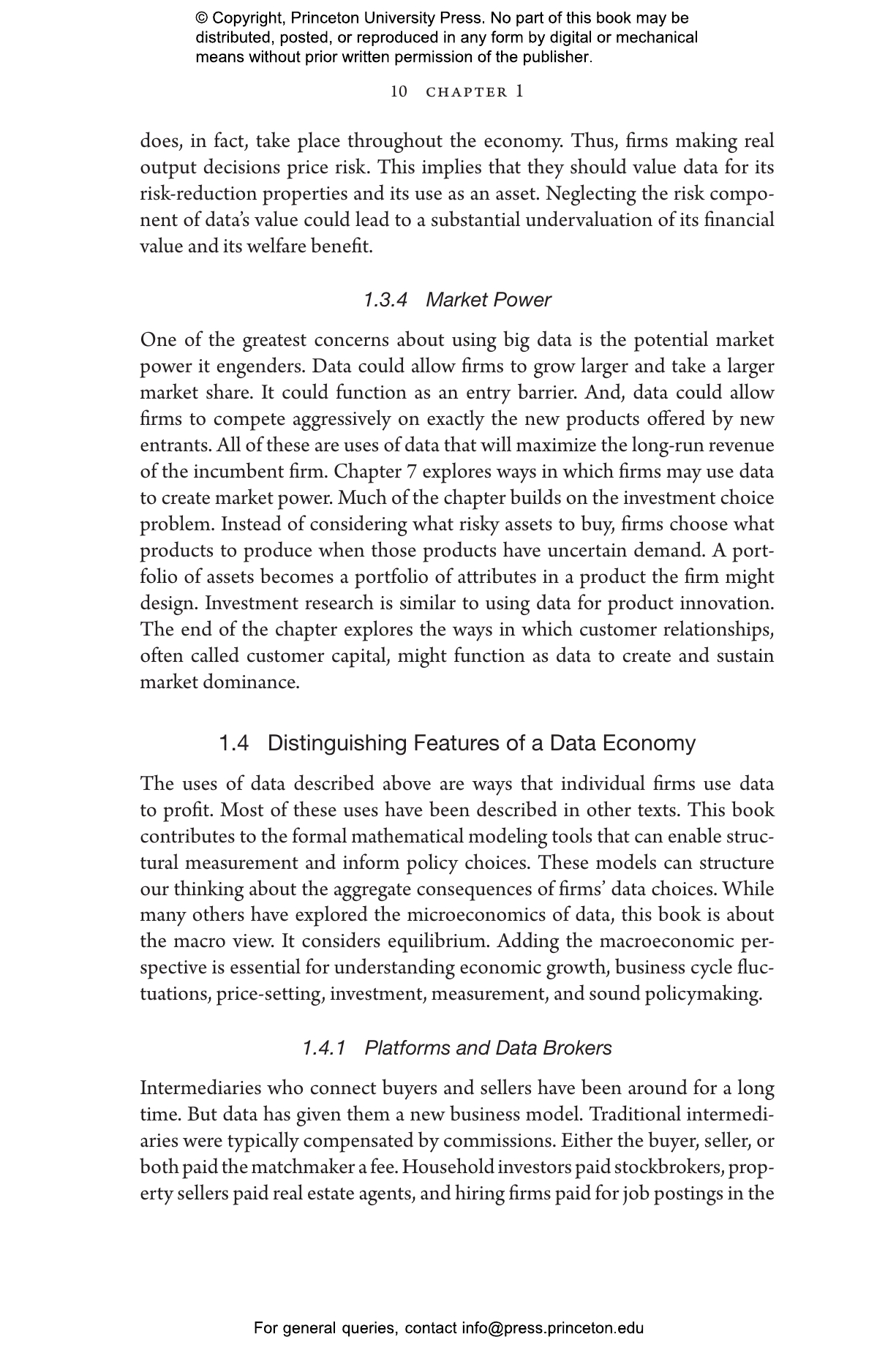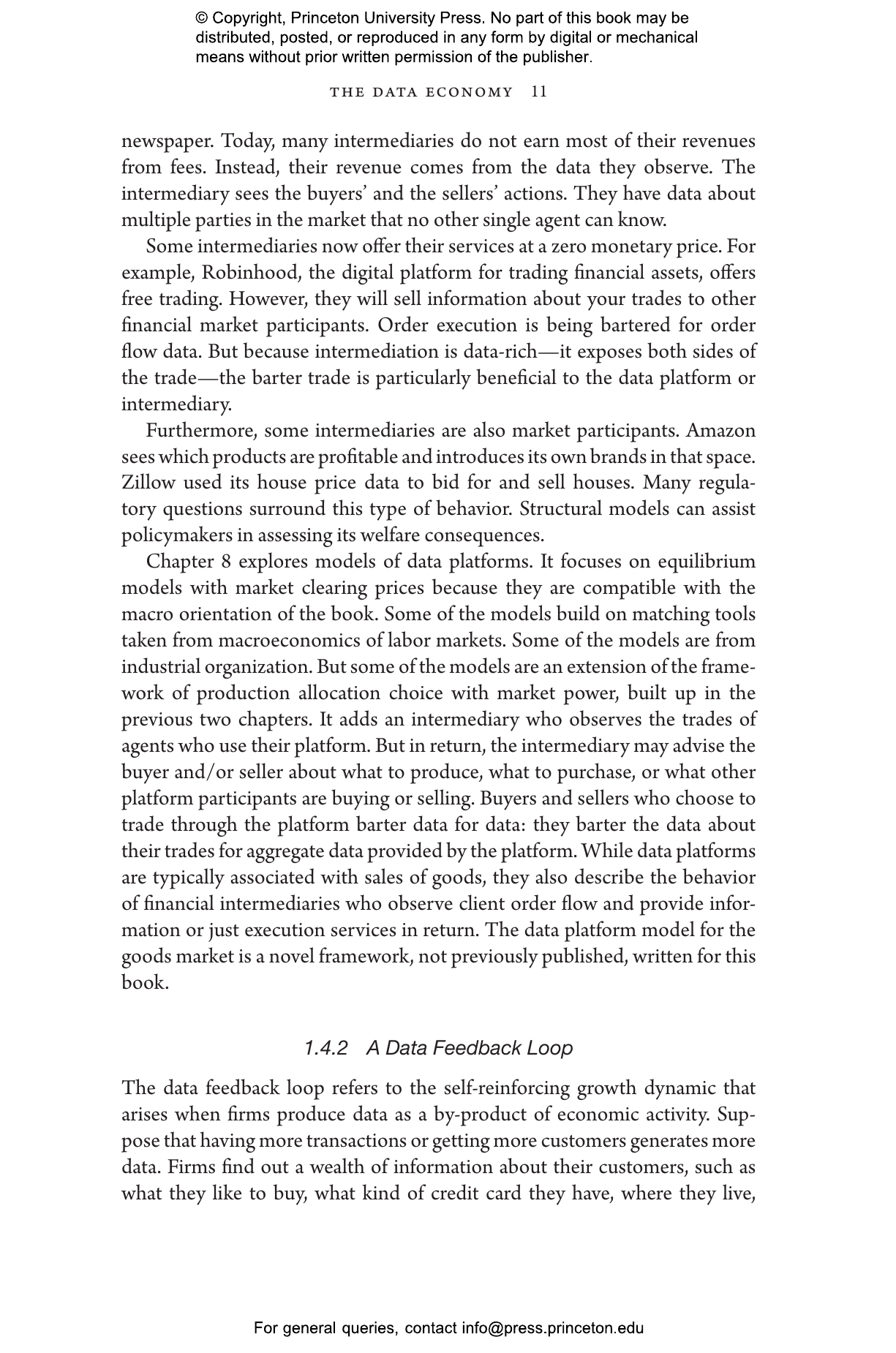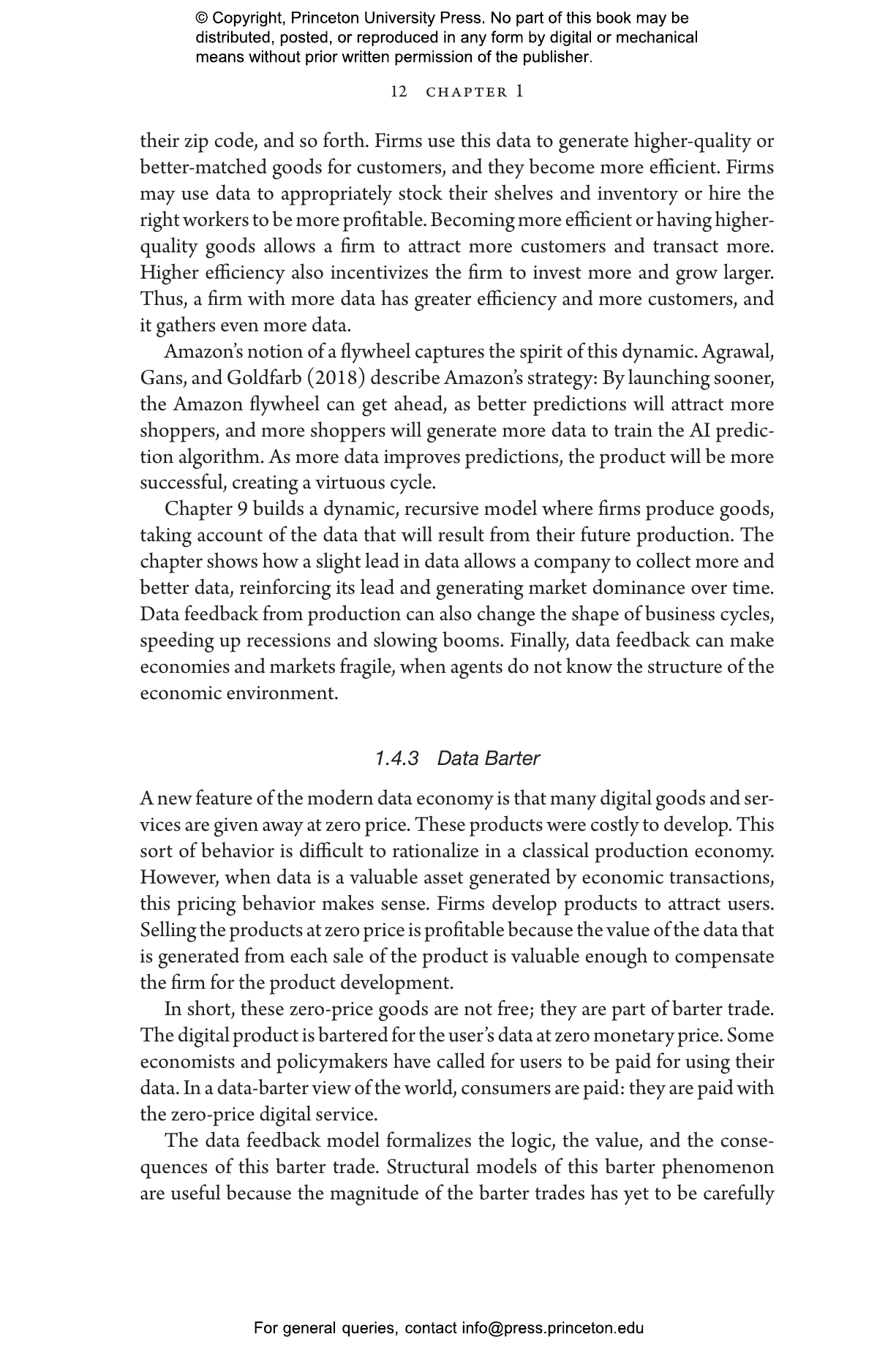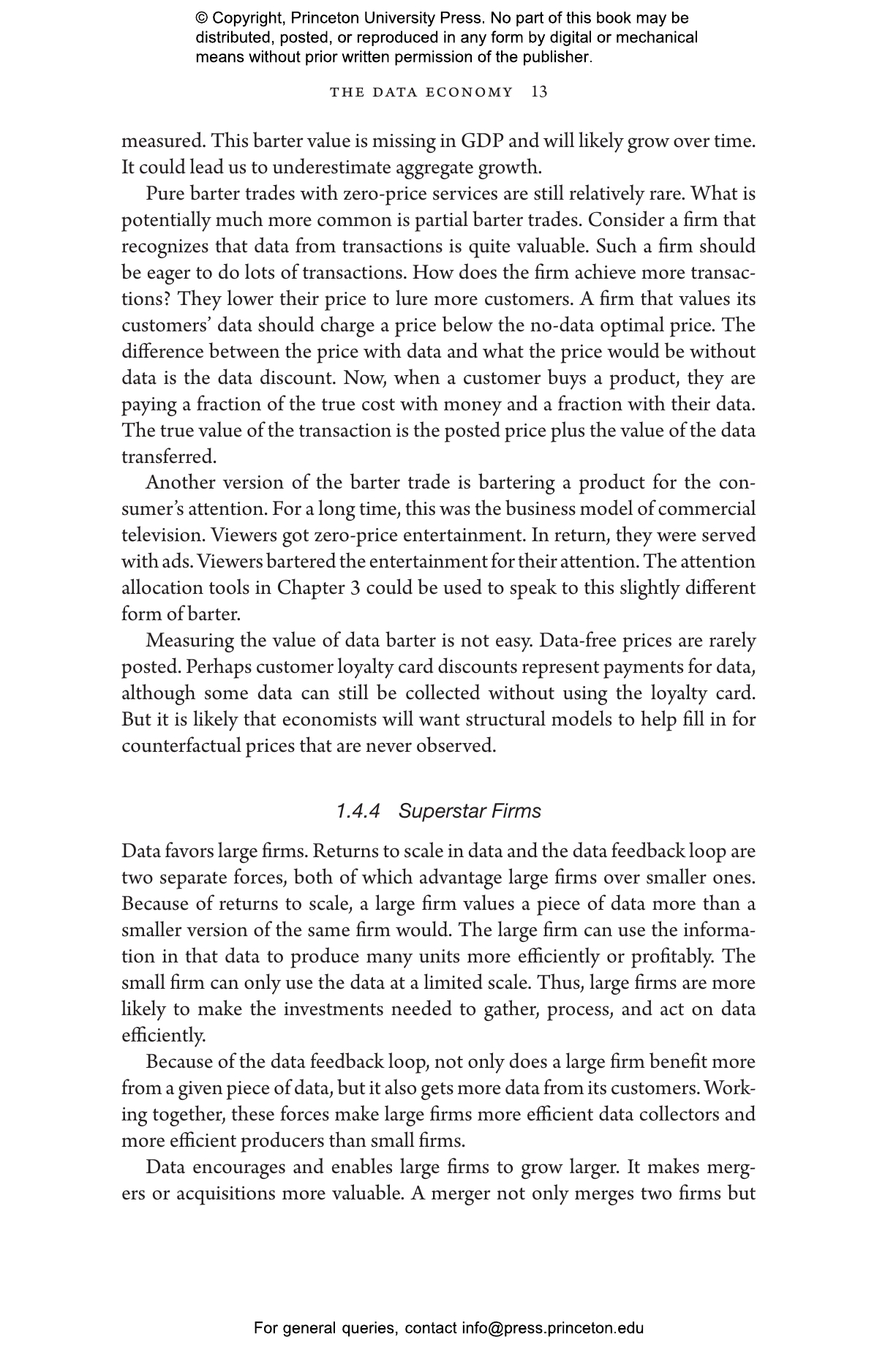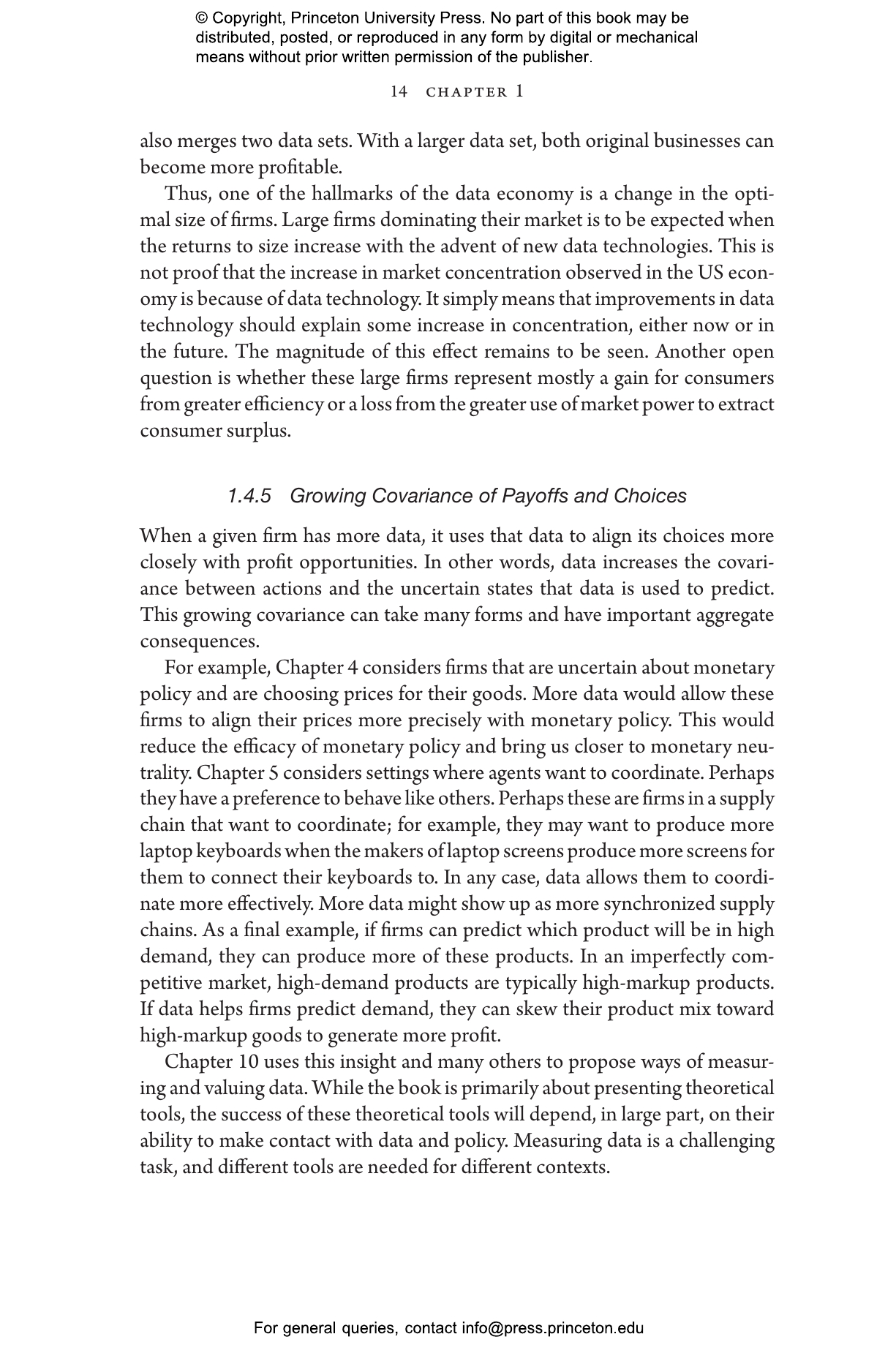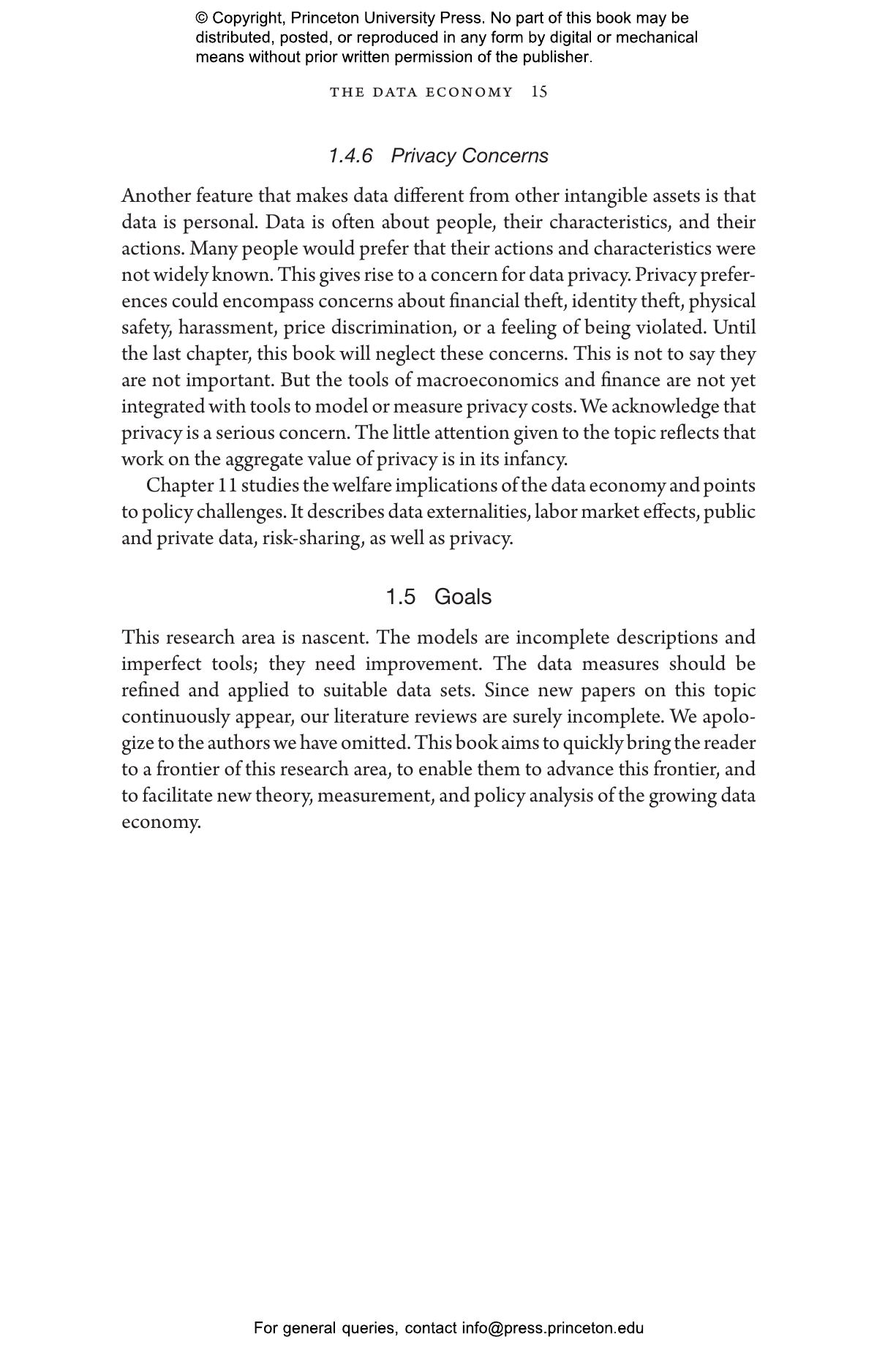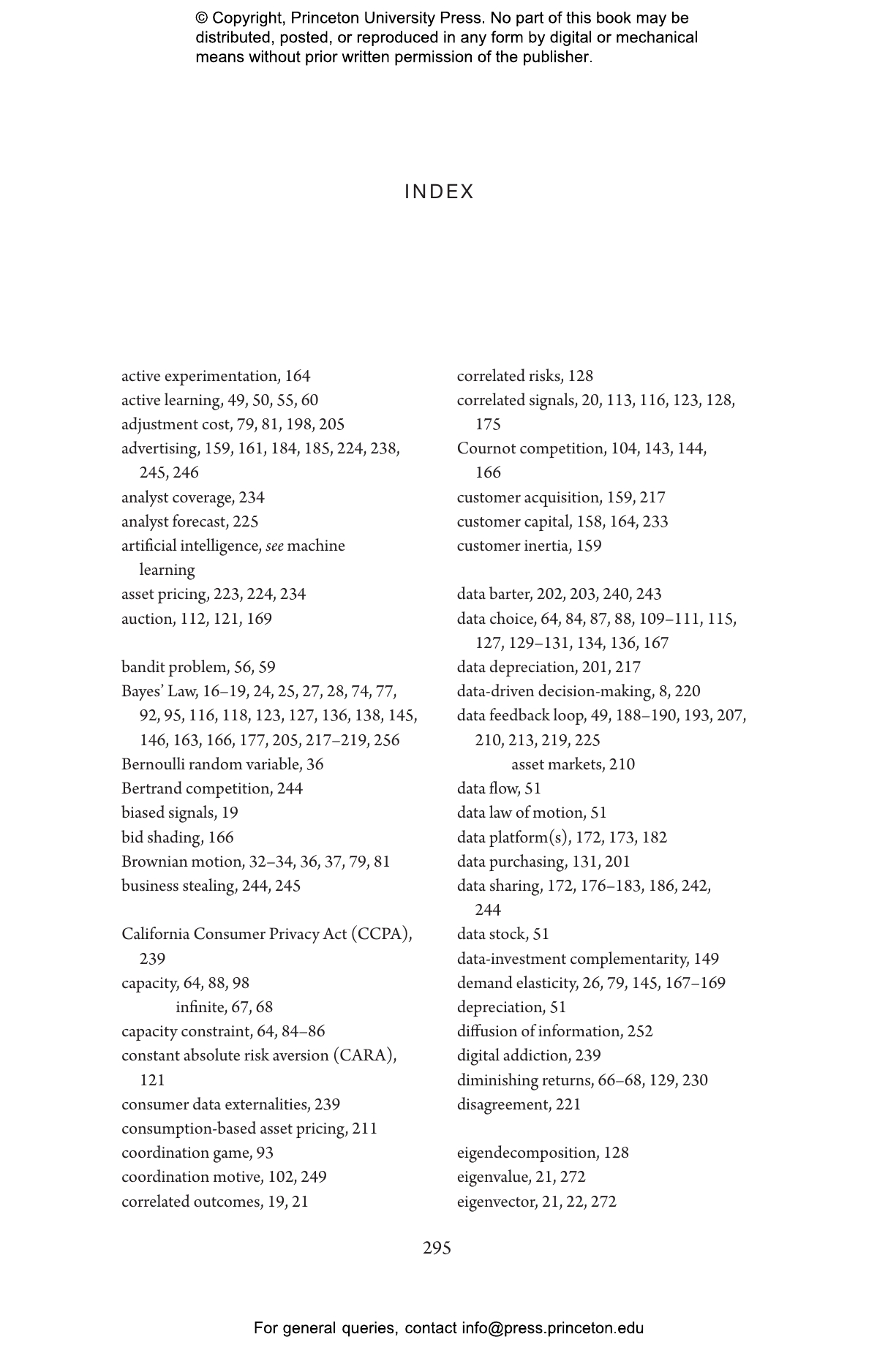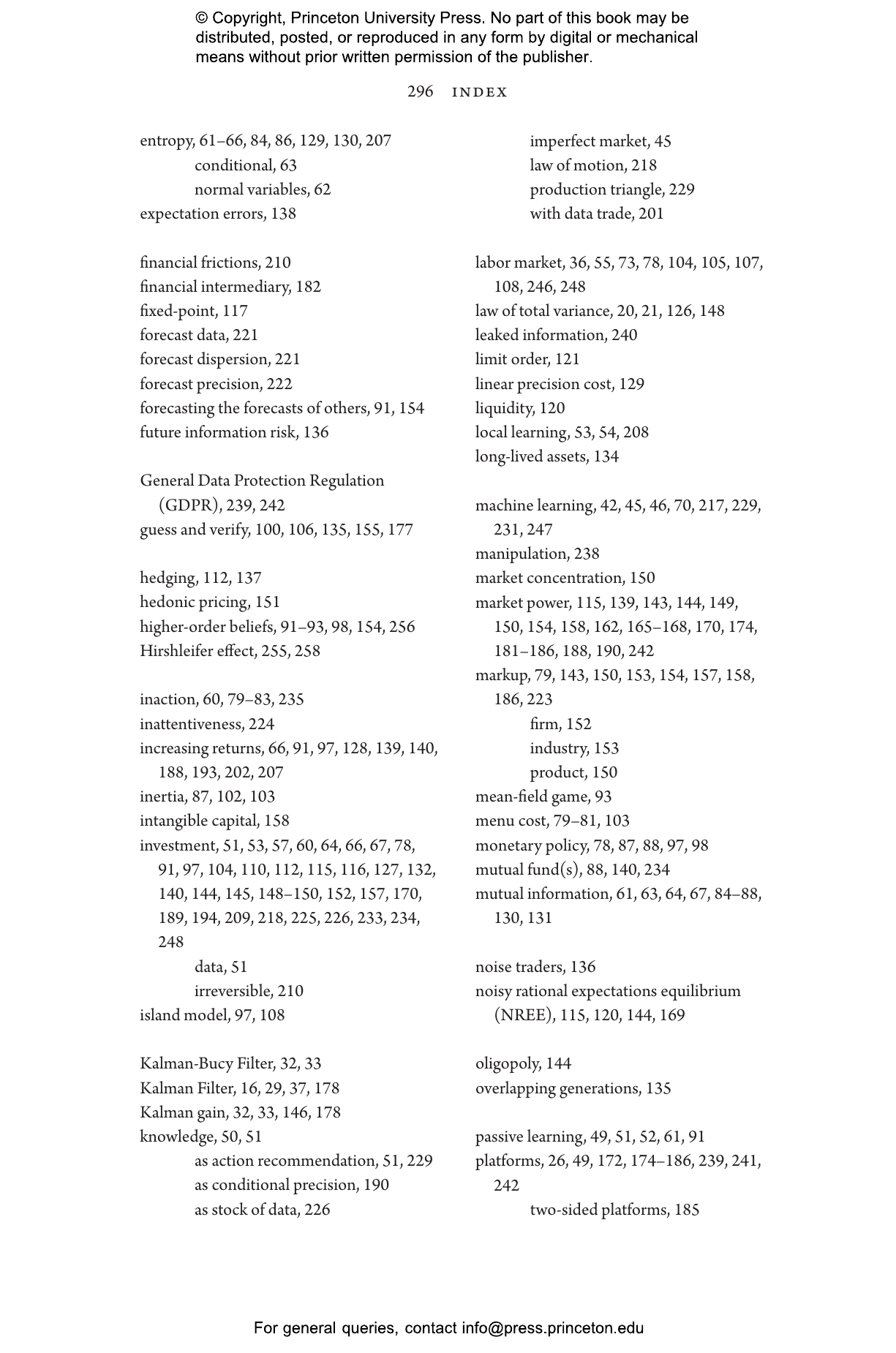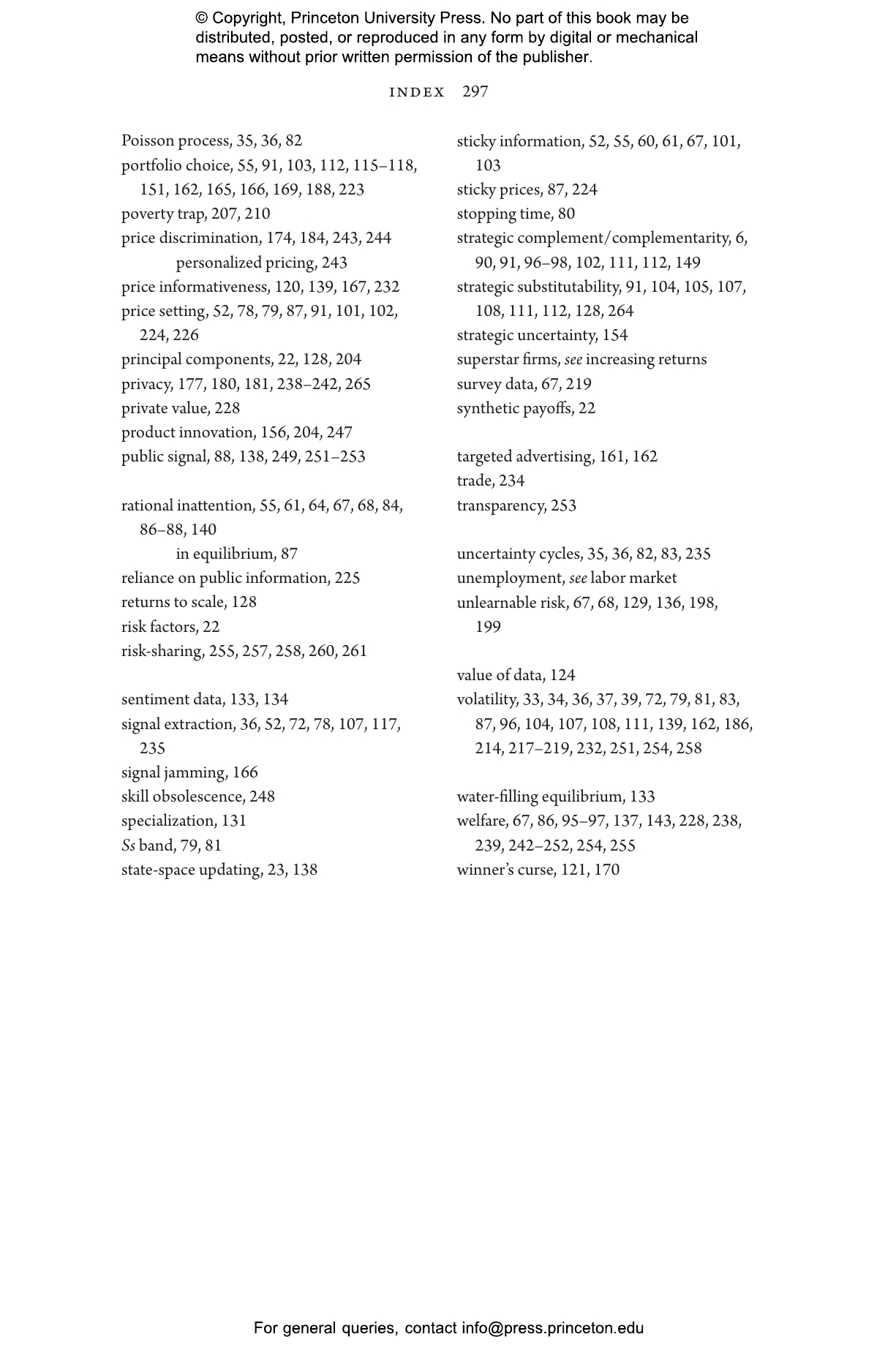The most valuable firms in the global economy are valued largely for their data. Amazon, Apple, Google, and others have proven the competitive advantage of a good data set. And yet despite the growing importance of data as a strategic asset, modern economic theory neglects its role. In this book, Isaac Baley and Laura Veldkamp draw on a range of theoretical frameworks at the research frontier in macroeconomics and finance to model and measure data economies. Starting from the premise that data is digitized information that facilitates prediction and reduces uncertainty, Baley and Veldkamp uncover the ways that firm-level data choices resonate throughout the broader macroeconomic and financial landscapes.
With The Data Economy, Baley and Veldkamp put forward a broad research agenda with a formal yet accessible approach, offering an analysis of the data economy and its welfare effects that will be of interest to practitioners, researchers, and graduate students. The tools presented, many of them information-related methods from macroeconomics and finance, are theoretical but introduced with careful attention to how they can inform or enable measurement. Applications include assessing the economic worth of data and unraveling its influence on the structure of production, inflation, and pricing dynamics; firm and investor behavior; advertising; market power; and asset pricing. Baley and Veldkamp bring readers to the cutting edge of this novel research area, equipping them to formulate their own theoretical advances and policy analysis.
Isaac Baley is associate professor of economics at Universitat Pompeu Fabra, associate researcher at the Centre de Recerca en Economia Internacional, and affiliated professor at the Barcelona School of Economics. He is a former economic advisor to the Mexican Ministries of Economics and Finance. Laura Veldkamp is the Cooperman Professor of Economics and Finance at Columbia University's Graduate School of Business. She is the author of Information Choice in Macroeconomics and Finance (Princeton), a former editor of the Journal of Economic Theory, and a member of the American Finance Association's board of directors.
“Baley and Veldkamp once again prove that they are pros at using tools from economics, statistics, and information theory to analyze technologies and choices that are reshaping today’s economies. This book is a gold mine of insights about data and how to extract information that it contains about parameters that can inform decisions.”—Thomas J. Sargent, winner of the 2011 Nobel Prize in Economics
“In The Data Economy, the authors draw on their own and others’ extensive work on data as digitized information to improve prediction and reduce uncertainty. Going beyond information theory, Baley and Veldkamp provide students and researchers with a bevy of tools, models, and applications for the data economy. This collection should spark an explosion of research—to match the explosion in data and its potential impact.”—Janice Eberly, Kellogg School of Management
“Some books aim to provide comprehensive treatments of mature research topics. Others, like this one, succeed by posing challenging new questions. The authors have done a masterful job of both surveying existing research tools that are pertinent to the study of the information economy and posing important new questions to investigate. Their speculative models lead the way in exploring the economic role of modern high-speed and high-volume data accessibility from a macroeconomic perspective. I recommend this fascinating book to all scholars looking for a thought-providing treatment of this emerging field.”—Lars Peter Hansen, winner of the 2013 Nobel Prize in Economics
“Baley and Veldkamp have written the modern guide to the economics of data. Merging their expertise in macroeconomics and finance, they provide detailed theories of what makes Google, Meta, and Amazon so valuable. Highly recommended!”—Charles I. Jones, Stanford Graduate School of Business


